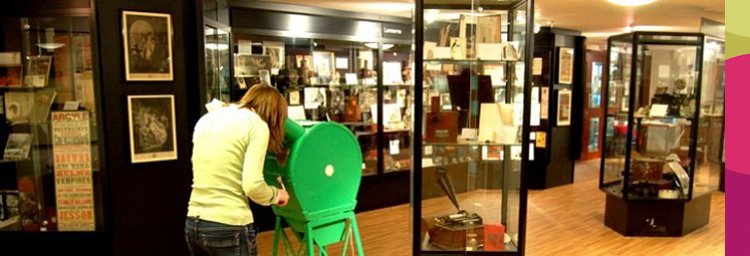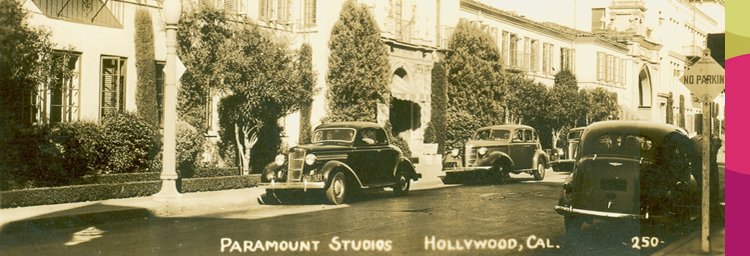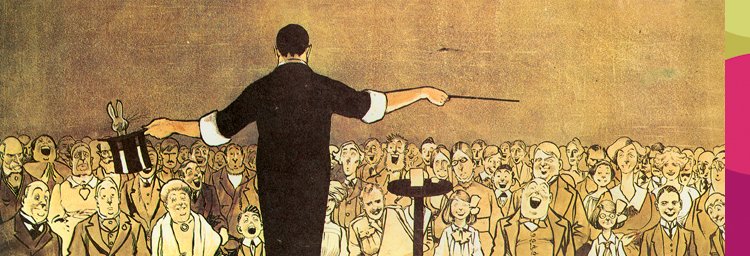By Bill Douglas
Copyright © 1978 The Estate of Bill Douglas
For as long as I can remember I always liked the pictures. As a boy I spent so much time in cinemas, a friend suggested I take my bed with me. I would have, had it been possible. That was my real home, my happiest place when I was lucky enough to be there. Outside, whether in the village or the city, whether I was seven or seventeen, it always seemed to be raining or grey and my heart would sink to despairing depths. I hated reality.
Of course I had to go to school - sometimes. And I had to go home and apply myself to the things one has to do. But the next picture, how to get in, was the thing that occupied my mind. There was never any money to buy a ticket. Still, there were ways. I could get into the Pavilion, or The Flea Pit as we called it, for the price of two jam jars, washed or unwashed. That they were acceptable unwashed was no mean concession as I would sometimes have to ferret through buckets for the sticky objects and make a desperate last minute dash so as not to miss the beginning of the picture. How exactly did the jam jar system work? Well, it began with the war years when waste of anything was discouraged. Whereas before children had used the jars for target practice, now they could make it rich by returning them to the grocer (one penny each) or simply leave the business transaction to the Picture House. Sometimes, when I could not find any jars, I had to sneak in by a side door.
What an agonising experience it could be lying in wait, down the side of the cinema, hearing only the sounds of the magic show inside, waiting for what seemed an eternity for that heartening clack of the door opening. Imagine actually penetrating the Palace, lurking for a moment inside the toilet so as not to arouse suspicion, sliding open the swing door to a crack, getting the eyes accustomed to the dark, keeping an eagle watch on the usherette. And then the final brave move forward into the auditorium, careful not to sit on a strange lap searching for a place. It was danger stations if that happened, for at the first signs of a rumpus the torch became a spotlight for interrogation. It was no use saying that you had chewed your ticket by mistake. Out you went.
We sat on hard wooden benches, in the 'cheapies'. The Pavilion interior was a cobwebby place: an ancient curtain hung sadly to one side of the screen, sometimes refusing to be drawn, while mice nibbled at the ankles. But who cared about that when Sabu was riding his elephant? It was paradise sitting there in the cosy dark being hypnotised by the play of light. Up there was the best of all possible worlds. To enter this world, that was the dream. Only later did I become aware that real human beings actually worked on the films, that behind the stars was a producer, director, writer, cameraman, designer and so on.
It was about this time I nourished the idea of working in the industry. There was, however, one major snag: how to apply myself. I had no fixed ambition. I would shift from movie star to movie director and back again as the fancy took me. It was all exciting to me. There was one brief moment of hope when I sent some drawings to Hollywood to a certain Milo Anderson whose name I picked out of a fan magazine. I waited in suspense for the invitation to become a designer. There was no reply. I can laugh now thinking how imitative my drawings were. So I plodded on, doing any kind of odd jobs and they had to be odd because my heart was never in them. In short, I did anything to make enough money to get to the pictures.
About this time - I was seventeen - a certain ritual took place. Returning from work, I would shave, comb my hair repeatedly, bring my shoes to a high polish and perfect my tie to keep my date - with the cinema. At thirty I was still nowhere near my goal. In fact it looked as though I was going to preserve the dream forever. Then an incredible thing happened. A friend gave me an enormous Christmas gift. Inside the crate lay all the 8mm equipment any film-maker could wish for. There was a camera, film, projector, editor, splicer, titler - everything. I wandered the streets filming everything I could set my eyes on, zooming, tilting, panning, whizzing, rarely static, learning from my mistakes.
In time I became very ambitious. I wrote a screenplay, made costumes, built sets for an adaptation of a Chekhov short story. All amateurs will know the excitement of waiting for the postman to bring back the processed film. Breakfast was the last thing on my mind. I would quickly get up, draw the curtains, and sit there transfixed, marvelling at the miracle of everything moving. In no time at all I talked my way into the London Film School. Two years later I was out in the real world of film. I sat in my room in front of the typewriter wondering what I could write. Adaptations of present day novels or plays were out of the question on account of cost. I rejected period pieces as too ambitious and costly for a beginner like myself. And so I wrote about my childhood. Strangely enough, my trilogy is not about a dream world, but about the real landscape I had wanted so badly to escape from. But the making of these films, financed by the British Film Institute, could not be a cathartic exercise. There had to be a distance. I had to be objective so that the characters could come to life, so that the work could have shape.
Good work cannot succeed unless the creator feels compassion. He can only begin when the self is put into perspective, when he has fixed a point of view. Chekhov put it better than I: "I can write only from memory, I never write directly from life. The subject must pass through the sieve of my memory, so that alone what is important or typical remains there as on a filter." It is as simple as that.






